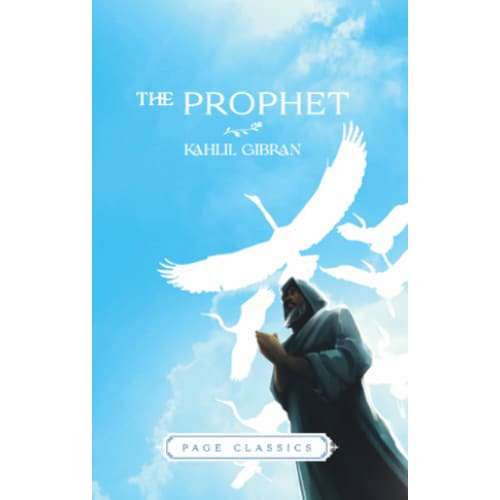
The Prophet
Check my rate
View locations
| Main centres: | 1-3 business days |
| Regional areas: | 3-4 business days |
| Remote areas: | 3-5 business days |

| Main centres: | 1-3 business days |
| Regional areas: | 3-4 business days |
| Remote areas: | 3-5 business days |
The story is set in the city of Orphalese, where the prophet Almustafa has lived in exile for twelve years. As he prepares to board a ship that will take him home, a group of city dwellers gathers around him, asking for his wisdom on various aspects of life. What follows is a series of meditations in which Almustafa shares his insights on topics as diverse as love, work, freedom, and death, offering spiritual and philosophical guidance that resonates with readers across time and cultures.
Each chapter of The Prophet addresses a particular theme or question about the human condition. Some of the most notable topics include:
1. Love: Gibran explores love as a force that transcends human emotions, a transformative power that connects individuals and makes them whole.
2. Marriage: He speaks of marriage as a union of souls but emphasizes the importance of personal freedom and individuality within the relationship.
3. Children: Almustafa teaches that children are not possessions but the arrows sent forth by parents to fulfill their own destinies.
4. Work: The prophet views work as a means of expressing one's essence and fulfilling a divine purpose.
5. Joy and Sorrow: Gibran presents joy and sorrow as inseparable; one cannot exist without the other, as both are part of the human experience.
6. Freedom: He reflects on the concept of freedom as both an inner and outer experience, not merely the absence of constraints but the liberation of the soul.
7. Pain and Self-Knowledge: Pain is portrayed as a teacher, one that brings wisdom and self-awareness through the process of suffering.
8. Death: Death, for Gibran, is not an end but a return to the source, a transition into another form of existence.